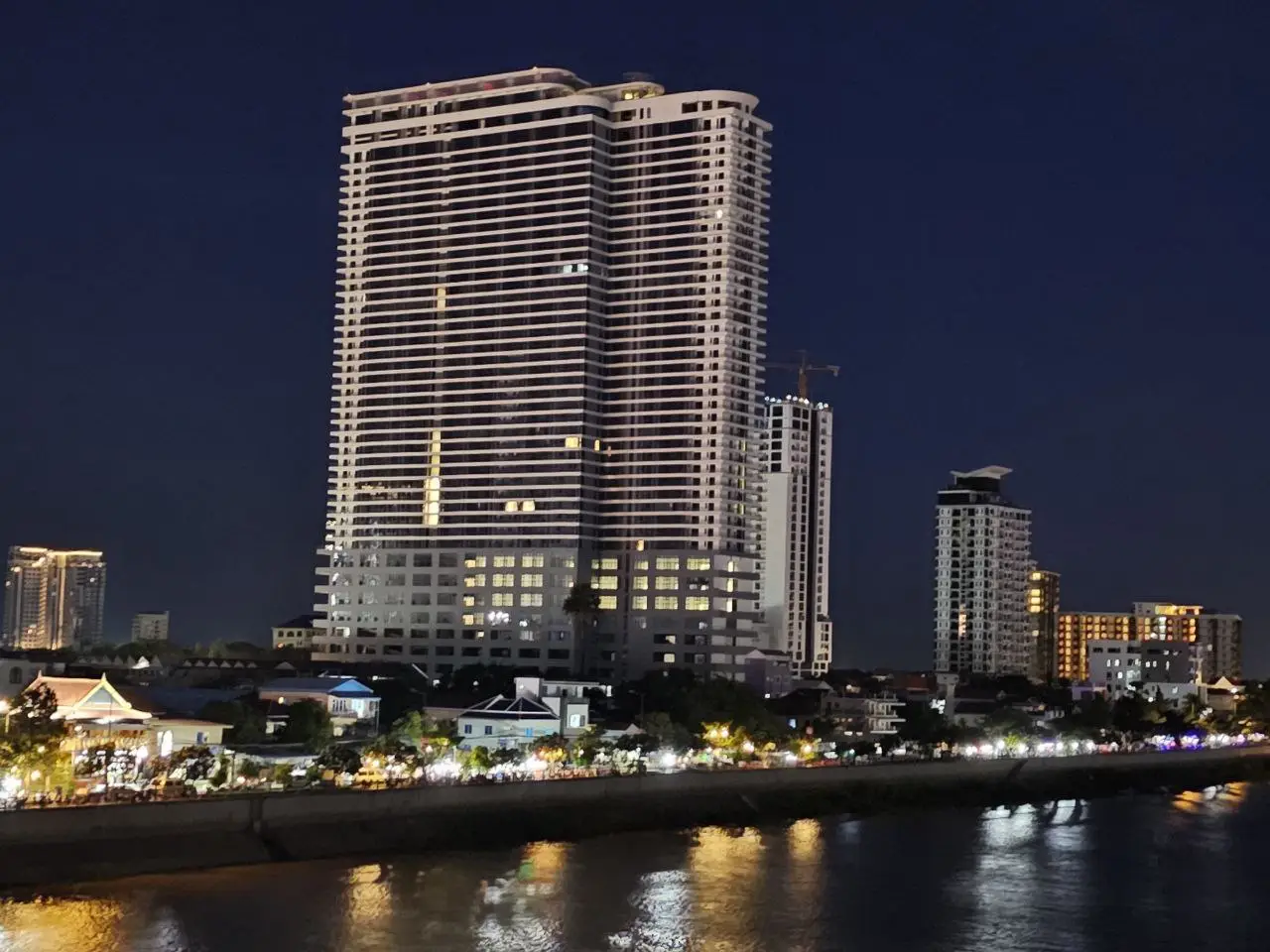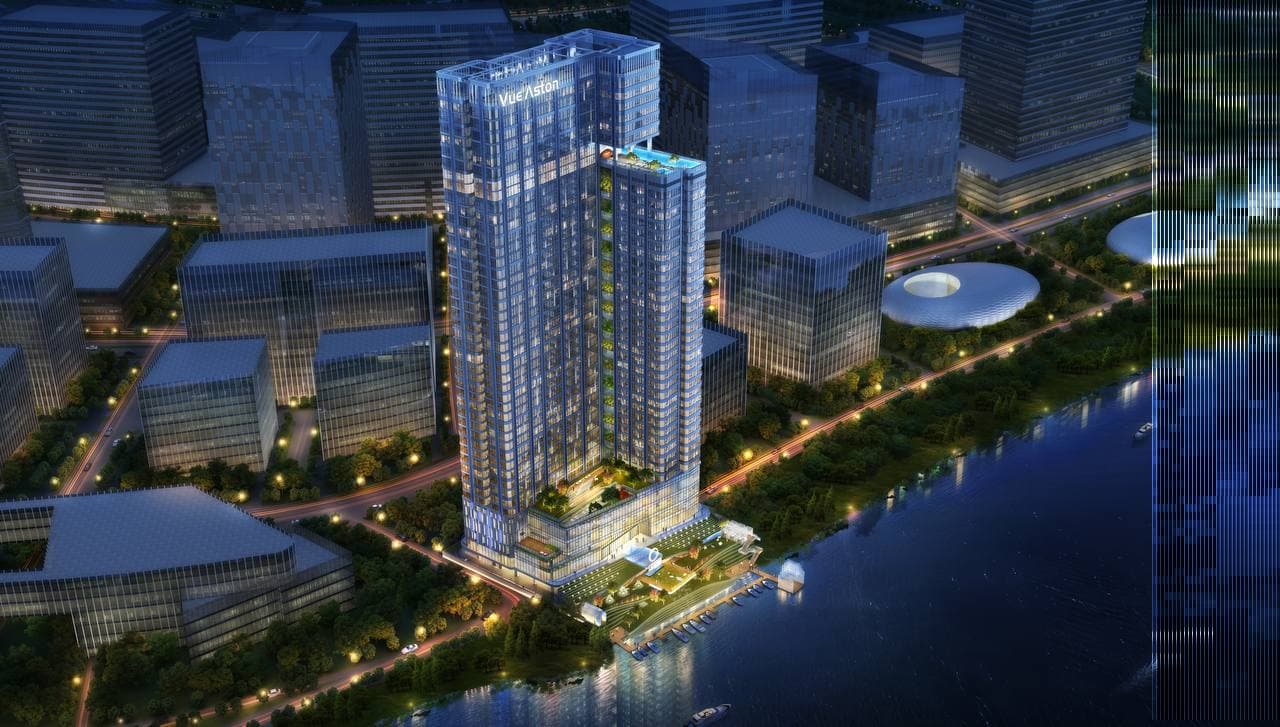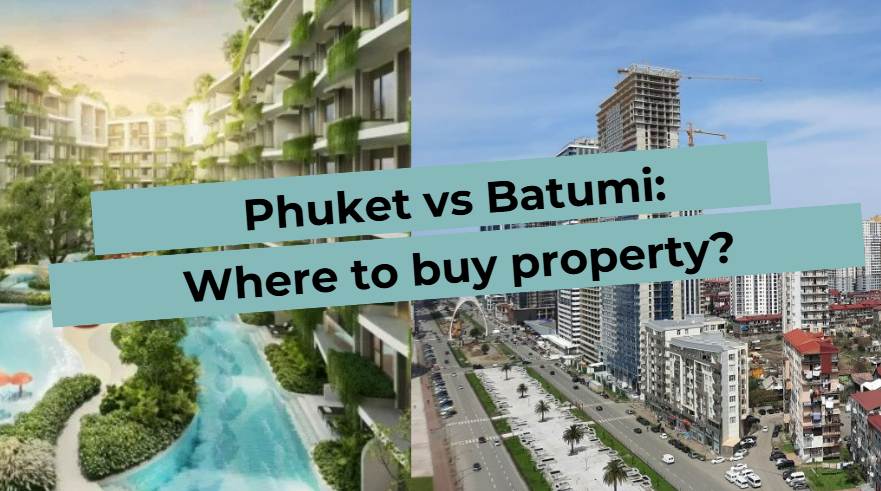
How to buy real estate in Cambodia


Real Estate Specialist
Buying real estate in Cambodia is not just an investment, but an opportunity to start a new life in a country with a unique culture and stunning scenery. This fascinating process has its own nuances, which are worth knowing for every foreigner who wants to become a homeowner in this exotic corner of Southeast Asia. In this article we will look in detail at how to properly approach the issue of buying real estate in Cambodia, what advantages it can bring, as well as the legal aspects that need to be taken into account.
- Why should you consider buying real estate in Cambodia?
- What advantages does this country offer to foreign investors?
- What are the legal aspects involved in buying real estate?
- What steps do I need to take for a successful transaction?
- How to avoid possible risks and fraud?
Let's dive into the world of Cambodian real estate and figure out how to make your dream of owning your own place a reality!
Overview of the process of buying real estate in Cambodia for foreigners
When I first thought about buying real estate in CambodiaI had a lot of questions going through my mind: "Where do I start?", "What pitfalls await me?" and "Will I really be able to become a homeowner in this country?". If you are in a similar situation, don't worry! I'll walk you through the process and give you some useful tips to help you avoid the hassle.
Options for buying real estate
Now let's take a closer look at the real estate buying options available to foreigners in Cambodia. As I mentioned, there are several ways to go about it, and each one has its pros and cons. It is important to choose the one that suits your needs and financial capabilities.
1. Establishing a company with a Cambodian national
Setting up a company with a Cambodian citizen is one of the most popular ways for foreigners to own real estate. This process may require you to make an investment of 1,000 to 5,000 US dollars for company registration, including legal services and taxes. It is important that your partner is reliable and has experience in running a business. Once the company is registered, you can purchase land and real estate in its name.
The pros of this method are that you get full ownership of the property and the ability to do business in Cambodia. However, the downside can be the need to manage the company and comply with all legal requirements.

2. Long-term lease of real estate
If you don't want to invest in a purchase right away, long-term renting can be a great option. Typically, renting a home for a period of one year or more is $300 to $1,000 per month.Depending on the location and type of property. For example, you can rent a one-bedroom apartment in the center of Phnom Penh for about 400-600 dollars a month or a villa by the sea in Sihanoukville for about US$800-$1,200.
Long term renting gives you the flexibility and opportunity to test out life in Cambodia before deciding to buy. However, it is worth remembering that you will not own the property and cannot make changes without the landlord's consent.
3. Registration of real estate in the name of a Cambodian citizen
Registering a property in the name of a Cambodian citizen is another option that may suit those who have a trusting relationship with a local. The cost of such a transaction can vary depending on the value of the property, but you can expect the price to be in the range of 50,000 to 200,000 US dollars for an apartment or house. You will need to discuss the terms with your partner and make sure that all legal aspects are taken into account.
The pros of this method are that you can access the property without setting up a company. However, if your relationship with a Cambodian citizen changes, this can create problems with property rights.

4. Marriage to a Cambodian citizen
If you decide to tie your life to a Cambodian citizen, this can open the door to buying real estate without restrictions. Once married, you will be able to purchase real estate in joint names. The cost of real estate in this case will depend on the property you choose, but you can focus on the following amounts 30,000 to 300,000 US dollars depending on the region and type of housing.
The pros of this option are that you get easy access to property and the ability to jointly manage finances. However, it is important to remember that marriage is a serious step and it is important to build the relationship on trust and understanding.
5. Obtaining Cambodian citizenship
If you plan to stay in Cambodia for the long term, obtaining citizenship may be your final destination. The process may take several years and require you to invest, including paying taxes and fees, which can amount to 5,000 to 10,000 US dollars. Once you obtain citizenship, you will be free to purchase real estate without restrictions.
This option is suitable for those who want to fully integrate into society and obtain all the rights of citizens. However, do not forget that it requires time and financial investment.
Each of these options has its pros and cons, and it is important to weigh the pros and cons carefully before making a decision. Be sure to consult with a lawyer to find the best path for you!
The real estate purchase process
Now that we have looked at the different options for owning real estate, let's move on to the buying process itself. There are several key steps that will help you successfully complete the transaction and become the owner of your desired property.
Step 1: Selecting a property
The first step is. property selection. Determine whether you need an apartment, house or commercial property. Explore different neighborhoods, considering factors such as accessibility to infrastructure, transportation links and safety. I remember spending a long time choosing an apartment in Sihanoukville, comparing different options until I found the perfect place with a sea view.
Step 2: Document preparation and legal advice
After selecting a property, proceed to step two - document preparation and legal advice. Be sure to consult a lawyer to make sure that all documents are in order and the transaction complies with the law. I recommend gathering all the necessary paperwork in advance, such as passport, income certificate and seller's title deeds. This will help speed up the process and avoid unnecessary delays.
Step 3: Negotiating the terms of the transaction
The next step is negotiation of terms. At this stage, it is important to discuss all the details with the seller or real estate agent. Make sure you understand all aspects of the transaction, including price, payment terms, and timing. Don't hesitate to ask questions and clarify points that concern you. I remember when negotiating a purchase apartments in Cambodia I carefully checked every detail to avoid misunderstandings. This really helped me to feel confident at every stage.
It is also important to discuss the terms of the transfer of ownership. Make sure you know what documents will be needed for final registration and what additional costs may be incurred. This may include taxes, registration fees and legal fees.
Step 4: Contract conclusion and registration
The final step is contracting and registration. When all the terms have been agreed and you are happy with the deal, it is time to sign the contract. Make sure that all the clauses in the contract are in line with the previously discussed terms. I recommend having an interpreter with you if your partner or seller speaks another language. This will help avoid misunderstandings and ensure transparency in the transaction.
After signing the contract, you will need to register the property with the local land office. This process may take some time, but it is an important step to protect your rights. I remember feeling great joy and relief after the registration - I was now the official owner of my corner of Cambodia.
Financial aspects of buying a property
Moving on to the financial aspects, it is important to understand how to organize payments for real estate. Transparency in financial matters is the key to a successful transaction.
Organization of payments for real estate
The first thing you need to do organize real estate payments. Usually the purchase is made via wire transfer and it is important to make sure that all transactions are properly documented. I recommend opening an account with a local bank to facilitate the transfer of funds and avoid unnecessary currency conversion costs.

Splitting payments into stages
Many vendors are willing to accept dividing payments into phases. For example, you may pay a portion of the amount as a deposit and the remainder at final registration. This can help you manage your finances better and reduce your risks. I remember when I used this approach myself and it gave me more flexibility in managing my funds.
Peculiarities of payment of the deposit and principal amount
Pay attention to specifics of payment of the deposit and principal. A deposit is usually 1-10% of the value of the property and confirms your seriousness. Make sure that all payment terms are spelled out in the contract to avoid misunderstandings in the future. I always recommend keeping copies of all documents and receipts - this will help you in case of disputes.
Legal aspects of buying real estate
However, before rushing headlong into the maelstrom, it is worthwhile to understand the legal aspects. Cambodian legislation on foreign investment has its own peculiarities. According to the law, foreigners can own real estate, but with certain restrictions. For example, you will not be able to buy a plot of land directly. But do not despair! There are several alternatives that will allow you to bypass these restrictions.
The first option - this Establishing a company with a Cambodian national. This allows you to become a co-owner of the property and bypass legal restrictions. I know a couple of people who have done just that and are now enjoying life in their homes without worrying about the legal nuances.

Another way - this long-term real estate leases. You can rent land or a house for up to 99 years, allowing you to enjoy life in Cambodia without having to buy. This is a great option for those who are not ready to invest a large sum of money right away.
Thus, understanding the legal aspects is the key to a successful real estate purchase in Cambodia. Be careful and do not hesitate to seek help from lawyers who specialize in real estate. It can save you a lot of time and effort!
Risks and precautions
Despite all the positive aspects, it's important to remember to Risks and precautions. As in any real estate transaction, there may be fraud or unscrupulous partners. Below is a table with the main risks and precautions to help you protect your interests when buying real estate in Cambodia.
| Risk | Description | Precautionary measure |
|---|---|---|
| Fraud on the part of the seller | The seller may conceal information about debt, legal problems, or other risks associated with the property. | Always check documents for title and encumbrances. Use the services of a lawyer. |
| Unscrupulous partners | Some agents or companies may offer misleading services or inflated prices. | Study partner reviews, conduct market research, and compare offers from multiple agents. |
| Improper paperwork | Errors in documents can lead to legal disputes and losses. | Work with a qualified attorney to help get all the paperwork right. |
| Lack of understanding of local legislation | The laws and regulations in Cambodia may be different from what you are used to. Misunderstandings can lead to legal consequences. | Consult a lawyer specializing in real estate to understand local laws. |
| Risks associated with financing | Improper organization of financial transactions can lead to loss of money or problems with transfers. | Open a local bank account and use it for all financial transactions to avoid additional charges. |
| Problems with renting or co-ownership | If you choose to register a property in the name of a local citizen, this could lead to legal disputes in the future. | Make sure you have clear agreements and legal documents to prove your rights. |
This table will help you better understand potential risks and prepare for them in advance. Remember that careful preparation and diligence is the key to a successful transaction. Don't forget the importance of consulting with professionals and verifying information at every stage of the Cambodia real estate buying process.

Advantages of buying real estate in Cambodia
Cambodia is becoming increasingly attractive to foreign investors due to its many advantages. Let's structure the information into a table to better understand what exactly makes this country unique for real estate acquisition.
| Advantage | Description | Examples |
|---|---|---|
| Low cost of living and real estate | Cambodia offers affordable housing prices, making it an attractive place to live and invest. | One-bedroom apartments in Sihanoukville can be rented for 300-400 dollars per month. |
| Prospects for economic growth | The country is actively developing infrastructure and attracting tourists, which contributes to the growth of real estate prices. | An acquaintance invested in Phnom Penh and doubled his investment in just one year. |
| Simplified procedures for foreigners | The process of buying real estate for foreigners is much easier than in other countries. | Foreigners can easily buy apartments in apartment buildings on the upper floors. |
| Variety of real estate objects | You will find a wide range of properties in Cambodia, from apartments to villas and commercial real estate. | The ability to choose accommodations in a variety of neighborhoods, from resorts to urban centers. |
| Access to long-term leases | Long-term rentals allow foreigners to enjoy life in Cambodia without having to buy real estate. | A 99-year lease is a great option for those who want flexibility. |
| Attractive tax conditions | Cambodia's tax system is quite loyal to foreign investors, which makes investments more profitable. | Low property taxes and no capital gains tax on the sale. |
| Unique culture and nature | Living in Cambodia offers unique cultural and natural experiences, making it an ideal place to live. | The opportunity to enjoy beautiful beaches, historical monuments and local cuisine. |
This table highlights the main advantages that make Cambodia attractive for buying real estate. If you are looking for affordable prices, growth prospects and a variety of options, this country could be your ideal choice!
How to avoid fraud
To avoid being scammed, always verify information about the seller and the property. I remember when a friend of mine experienced fraud when he bought an apartment that was in debt. He didn't check the documents and paid for it. It is always better to be reassured and take the time to do a thorough check.
Here are some useful tips to help you avoid unpleasant situations:
1. Document verification: Make sure the seller has all the necessary documents for the property. Ask for copies of the certificate of ownership, cadastral passport and other legal documents. This will help you make sure the property has no debts or encumbrances.
2. Checking the seller's reputation: Research the seller or real estate agent's information. Check reviews and testimonials. I always recommend contacting people you know or locals who can share their experiences. If you have the opportunity, visit the agency or seller's office to see how professional they are.
3. Consultation with a lawyer: Hire an experienced lawyer who specializes in real estate. He or she can help you understand legal aspects of the transaction and will check all the documents. I remember how my lawyer helped me identify a few small but important details that could cause problems in the future.
4. Verification of the legal status of real estate: Contact local land authorities to check the legal status of the property and make sure it is not mortgaged or otherwise encumbered. This may take time, but it is an important step for your safety.

5. Use of secure payment methods: When making financial transactions, try to use secure payment methods. Avoid cash payments and try to use bank transfers with documentary proof. I always prefer to make payments through the bank to have proof of transactions.
6. Take your time with your purchase: Do not rush to finalize the deal. If the seller insists on closing the contract quickly, it could be a sign of fraud. Make sure you have enough time to check all the documents and terms of the deal.
7. Trust your intuition: If something seems suspicious or gives you doubts, don't ignore your feelings. It is better to postpone the transaction and check everything again than to face problems later.
By following these recommendations, you will significantly reduce your risks and can confidently move towards your dream of real estate in Cambodia. Be careful and cautious and your investment will be safe and secure!
Now that you know about the process of buying real estate in Cambodia, you have a good chance of making your dream a reality. Don't forget that careful preparation and attention to detail is the key to a successful transaction. If you have any questions or need advice, don't hesitate to contact the experts.
Video about buying real estate in Cambodia
Key trends include growing demand for residential and commercial real estate, infrastructure development and active construction of new properties.
Foreigners can own apartments in high-rise buildings but cannot directly own land. Instead, they can use long-term leases and corporate structures.
Phnom Penh, Sihanoukville and Siem Reap are the most popular because of their developed infrastructure, tourist appeal and economic growth.
The cost varies depending on the neighborhood and type of property. In downtown Phnom Penh, the average price per square meter can reach $3,000 and higher.
Major taxes include property transfer tax (4% of assessed value), annual property tax (0.1% of assessed value) and other administrative fees.
The market is expected to grow further due to foreign investment, improved infrastructure and development of the tourism sector.
What are the major trends in the real estate market in Cambodia?
Key trends include growing demand for residential and commercial real estate, infrastructure development and active construction of new properties.
How can foreigners purchase real estate in Cambodia?
Foreigners can own apartments in high-rise buildings but cannot directly own land. Instead, they can use long-term leases and corporate structures.
Which areas of Cambodia are the most attractive for real estate investment?
Phnom Penh, Sihanoukville and Siem Reap are the most popular because of their developed infrastructure, tourist appeal and economic growth.
What is the average cost of real estate in Phnom Penh?
The cost varies depending on the neighborhood and type of property. In downtown Phnom Penh, the average price per square meter can reach $3,000 and higher.
What are the taxes and fees when buying real estate in Cambodia?
Major taxes include property transfer tax (4% of assessed value), annual property tax (0.1% of assessed value) and other administrative fees.
What are the prospects for the real estate market in Cambodia in the coming years?
The market is expected to grow further due to foreign investment, improved infrastructure and development of the tourism sector.




























